DESCRIPTION
The coronavirus outbreak has been addressed since its appearance in the news coverage of LA NACION, but when the disease began to show its most brutal face and the virus began to wreak havoc on the world, a team work was formed to focus on the pandemic together with the daily routine. Given this context and the lack of culture of transparency in Argentina, we proposed to monitor the sanitary strategy and evaluate the quality of public data. This was a hard task since several government sources coexist with data that does not match.
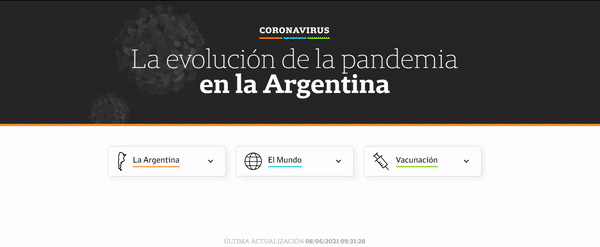
We created a platform which is fed with daily information that LA NACION team manually collects from the reports published by the Ministry of Health and from automatic processes of data that the National Government publishes as well on the national open data portal. The website presents one-a-kind analysis made with health specialists, that we continued to update every month.
Also, multiple pieces were prepared from the analysis of said information evidencing contradictions between data and official discourse, which obliged the Government to make some changes on its strategy. The lack of tests, the precarious epidemiologic surveillance system and several problems to give real-time answers were some of the results.
STRATEGY & IMPACT
Our fundamental strategy was to distinguish ourselves with an added value considering that all other newsrooms address the same subject matter. After having created our own indexes made by the data team, we offered new approaches and had journalistic findings that were imposed on the local news agenda.
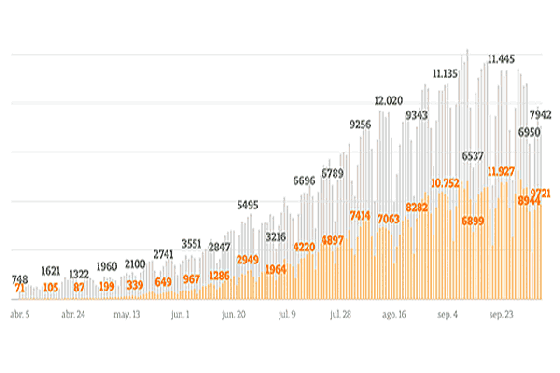
Based on our data analysis and journalistic productions, we included the discussion about data quality and their accessibility in the public agenda. Moreover, we created pieces every day to monitor sanitary decisions of the National Government.The development of the platform gave citizens and Health specialists a tool to monitor decisions that were made by the Government following the figures of our country. Since LA NACION´s newsroom actively reuse the data that was feeding the special website, inconsistencies in numbers were found and also reported by citizens. The articles published to make visible contradictions and problems in data promoted changes in the definition of coronavirus cases and adjustments and led to the release of a daily dataset containing detailed figures of what was happening in every corner of the country. The publication increased the use of data by activists, scientists, academics and specialists in diverse fields in Argentina. In this sense, the development of the platform led to the emergence of a group of watchdogs that are in permanent contact through a Telegram group.
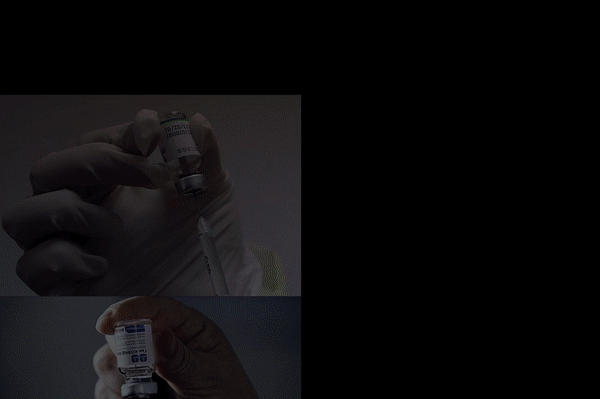
For example, we found mistakes in the data provided by the epidemiologic surveillance national system: entries are deleted from the public access database and there are inconsistencies in the changes of status of the same patient. This leads to a decrease in a number of positive cases informed to citizens and to international agencies. Also, LA NACION discovered that a ghost company carried out Covid-19 tests at the largest airport of entry to the country and earned millions with mysterious beneficiaries, without control of the Government, that, at the same time, required a negative result to enter the country. Because of this, the contract with the laboratory was revoked with unclear maneuvers and alleged complicity of a power sector.
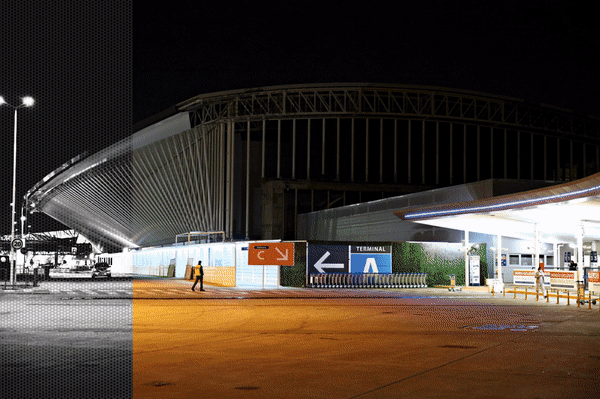
For several months, we did not have any open format or real-time information of the pandemic, so we did more than 30 requests for information access (with a minimum delay of 20 days) to access these data, vital for the follow-up of the pandemic and the Government did not give us that access.
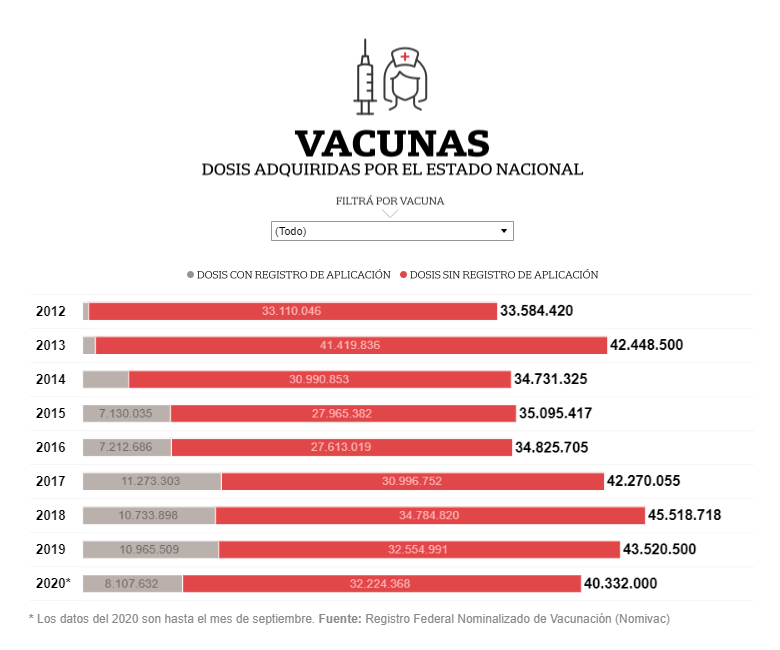
In all cases, we found other obstacles that delayed the process when we received the answers. Data provided had serious quality problems: unstructured data, duplicated, spelling mistakes and out-of-date data.
Consequently, at the end of all this process, the out-of-date was evident and obliged us to make a new request of access to information to publish a story with a more updated analysis.
HOW MANY PEOPLE WORKED ON THIS PROJECT OR WHAT IS YOUR BEST ESTIMATE?
A total number of almost 20 persons worked in this Project in which journalists, data analysts and designers were involved.
WHAT WAS THE TOTAL PROJECT BUDGET OR YOUR BEST ESTIMATE?
Productions were carried out by LA NACION teams with no need of an extra budget.